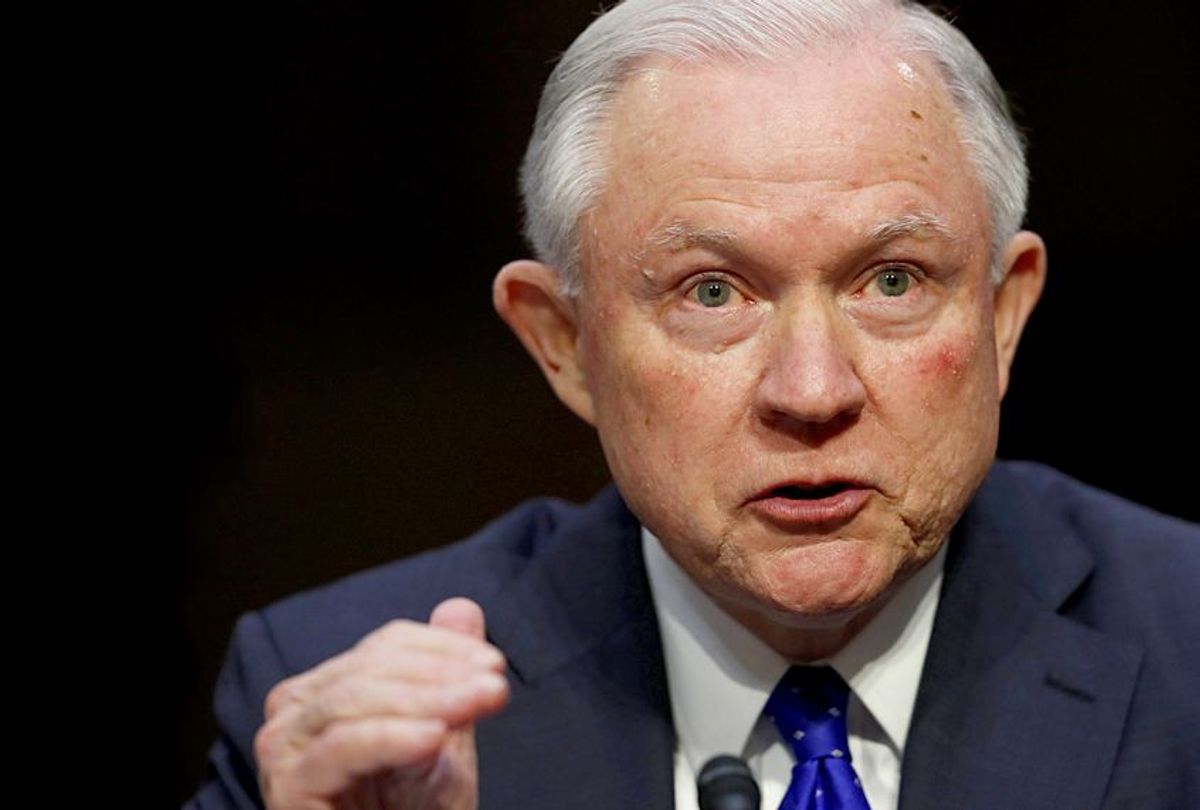President Donald Trump's attorney general is rescinding a policy implemented by President Barack Obama that protected states which had legalized marijuana.
Attorney General Jeff Sessions is rescinding a policy known as the Cole Memo — named after Obama's deputy attorney general, James M. Cole — that allowed states which legalized marijuana to do so without federal interference so long as they kept it out of states where it was prohibited and away from gangs and children, according to the Associated Press.
Sessions, by contrast, has decided to allow federal prosecutors from states where marijuana has been legalized to decide for themselves whether they will aggressively enforce federal laws prohibiting the substance. Eight states allowed the possession and sale of marijuana for both recreational and medical use as of September — including Alaska, California, Colorado, Maine, Massachusetts, Nevada, Oregon and Washington — while others like Vermont are considering laws that would move toward legalization. Most other states have passed laws that move to some degree toward decriminalizing pot or legalizing medical marijuana.
Sessions' policy shift has been met with outrage by many politicians, including one from his own party: Colorado Sen. Cory Gardner.
During his 2016 presidential campaign, then-candidate Donald Trump told a reporter from NBC News that he would leave marijuana policy to the states.
"I think it's up to the states, yeah. I'm a states person. I think it should be up to the states, absolutely," Trump said at the time.
"By rescinding the Cole Memo, Jeff Sessions is acting on his warped desire to return America to the failed beliefs of the 'Just Say No' and Reefer Madness eras," declared Erik Altieri, the executive director of pro-marijuana group NORML, in a press statement. "This action flies in the face of sensible public policy and broad public opinion. The American people overwhelmingly support the legalization of marijuana and oppose federal intervention in state marijuana laws by an even wider margin."
Altieri may have been referring to polls like one from April, which found that 61 percent of Americans believed marijuana use should be legal.
"This move by the Attorney General will prove not just to be a disaster from a policy perspective, but from a political one," Altieri added. "The American people will not just sit idly by while he upends all the progress that has been made in dialing back the mass incarceration fueled by marijuana arrests and destabilizes an industry that is now responsible for over 150,000 jobs. Ending our disgraceful war on marijuana is the will of the people and the Trump Administration can expect severe backlash for opposing it."
This isn't to say that simply allowing states to legalize marijuana on their own without changing federal law was ever a viable long-term approach to the problem.
"No, it's definitely not an effective way, but it seems to be the only way for the United States at this point in time," Mitchell Kulick, a lawyer who specializes in marijuana legal services, told Salon last year. "Certainly if you look to Canada, our neighbor to the north, what they have done is, they've legalized it across the entire country for medical at this point in time, moving towards recreational."



Shares